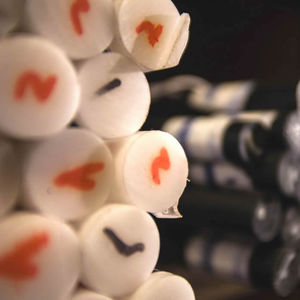
- Production - Materials - Metrology
- Materials - Semi-finished products
- Rod PTFE
- SMITHS ADVANCED METALS
Rod PTFE aeronauticalfor the aerospace industry
Add to favorites
Compare this product
fo_shop_gate_exact_title
Characteristics
- Shape
- rod
- Other characteristics
- aeronautical, for the aerospace industry
- Operating temperature
Max.: 260 °C
(500 °F)Min.: -260 °C
(-436 °F)
Description
PTFE (also known as Teflon) is a fluoropolymer that offers outstanding resistance to chemical attack. Characteristics of the material include very low friction and excellent electrical resistance but with low mechanical strength. PTFE also offers stability at low and high-temperature ranges (-260°C to +260°C) and has a non-stick surface (where the brand name Teflon has become so synonymous). PTFE is a good substitute for polyethylene in high-performance applications as the material has a higher melting point. While PTFE is machinable, it is a relatively 'soft' plastic and therefore may be easily marked. Also, the slippery nature of the plastic may make it difficult to clamp and hold before cutting. PTFE may also be reinforced with additives such as carbon, bronze and glass fibre.
Stock Availability
Smiths Advanced Metals stocks PTFE plastic bars in various sizes, shapes and colours.
Outstanding Corrosion Resistance
There are few solvents on the market today that can dissolve PTFE plastic at room temperature. PTFE's only real weakness is when the material is exposed to high energy radiation. Under such conditions, the radiation causes the PTFE molecule to break down. Apart from this, only fluorine and alkali metals in dissolved or liquid form will attack PTFE. The material offers superb corrosion resistance characteristics in the most violent and corrosive media. PTFE finds extensive use in oil & gas applications as well as petrochemical. Valves and subsea connectors make great use of PTFE.
Grades / Specifications
N/A
Applications
Aerospace components
General engineering
Laboratory components
Gaskets & valves
Product Benefits
Excellent chemical resistance
Catalogs
No catalogs are available for this product.
See all of SMITHS ADVANCED METALS‘s catalogsRelated Searches
- Aeronautical stainless steel
- Stainless steel
- Alloy steel
- Aeronautical alloy steel
- Titanium alloy
- Aeronautical titanium alloy
- Aluminum alloy
- Aeronautical aluminum alloy
- Steel alloy for the aerospace industry
- Stainless steel for the aerospace industry
- Aerospace titanium alloy
- Nickel alloy
- Nickel alloy for the aerospace industry
- Aluminum for the aerospace industry
- Titanium alloy rod
- Bronze
- Aeronautical copper alloy
- Rod nickel alloy
- Rod stainless steel
- Steel alloy rod
*Prices are pre-tax. They exclude delivery charges and customs duties and do not include additional charges for installation or activation options. Prices are indicative only and may vary by country, with changes to the cost of raw materials and exchange rates.


